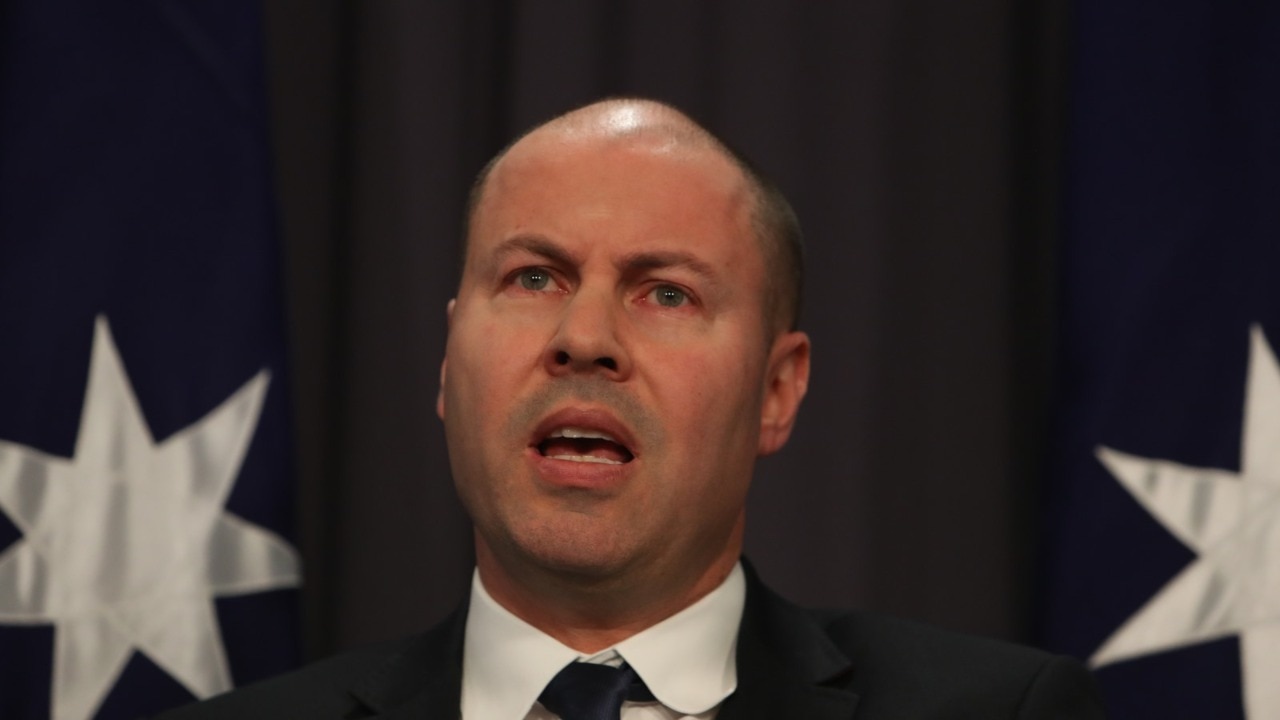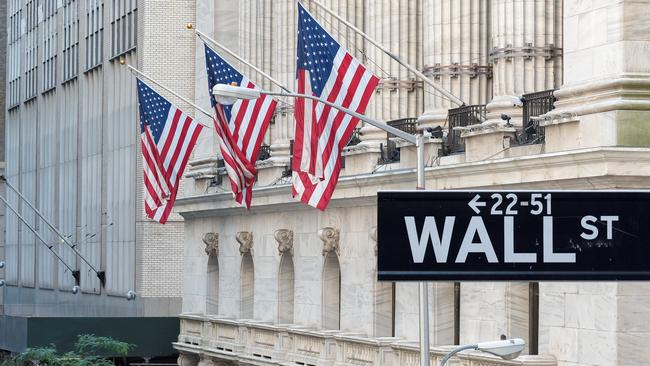Terry McCrann: Big week brings closest thing to free money
After an extraordinary week, home loan borrowers and investors have to decide if they should grab the closest thing to “free money” they are ever going to see and lock it in for four years, writes Terry McCrann.

Terry McCrann
Don't miss out on the headlines from Terry McCrann. Followed categories will be added to My News.
As the smoke clears on an extraordinary week, it is now a major — and I mean major — reassessment time for home loan borrowers and investors.
Owner-occupier borrowers have the “easiest” decision: should they grab the never before seen sub-2 per cent (just) four-year fixed-interest rates?
The short answer is, for most, yes. It is the closest thing to “free money” they are ever going to see and they can lock it in for four years.
There are all sorts of uncertainties — and all-but-guaranteed huge economic, financial, and — look at the US — political volatility ahead; so locking-in “close to free money” on the biggest spending decision you ever make, makes basic sense.
Even if money, by some even more extraordinary circumstance, gets to be a “little freer”, rates are not going to be significantly and so painfully lower.
This is not like locking in a home loan at a fixed 4 per cent not much more than a year ago, far less, say, 6 per cent – or the 13.5 per cent that some did back in the early 1990s.
But there are qualifications and exceptions. You probably don’t do it, if you are not certain to stay in the home for the four years; moving and refinancing can cost.
You also need to know you can’t run “offset accounts” against a fixed-rate loan. So if you thought you might have $50,000 or $100,000 to offset against your loan; you won’t be able to; and you will have to find somewhere else to invest that money.
This super sub-2 per cent rate is a direct consequence of what the Reserve Bank did on Cup Day. Yes, it was all built around cutting the RBA’s core cash rate to 0.1 per cent — with the banks being lent up to $200 billion at that 0.1 per cent to on-lend to their borrowers.
The big change though was the RBA moving to buy $100 billion of five-to-10 year Commonwealth and state bonds. The whole package locks in near-free money for at least three years and indeed beyond — and the banks played that out to owner-occupier borrowers focused on a four-year term.

They didn’t do anything for investor-borrowers and they left their basic owner-occupier variable rates unchanged, albeit still at these extraordinarily low rates running, depending on a number of factors, roughly between 2.5 and 3.5 per cent.
Normally I would now add: be aware that if the RBA started raising its cash rate, these variable rates would follow immediately and in full.
But the RBA has all-but promised there is no way it will raise for a minimum three years, out to at least the end of 2023; and it could be longer.
I say “all-but promised”; because if the world changed and the RBA did decide it had to raise, it would raise.
But I don’t see that “change” likely soon; and more importantly nor does the RBA. This all plays into the investment outlook and drivers — starting with the most basic investment of all: bank term deposits.
The obverse of the RBA “guaranteeing” all-but “free money” to borrowers is that the “free money” is being provided mostly by depositors. The RBA is telling depositors they will be lucky to get points above zero for the next three years minimum.
Now it is wrong to say a depositor gets “nothing” for their money; they get security (and access) — absolute security with the government guarantee of up to $250,000 per bank.
Bluntly, what the RBA — and every major central bank around the world — is trying to do is to “encourage” you to forgo this security and chase yield and hoped-for capital growth somewhere else.
That “somewhere else” is, first, investment property; and secondly the share market, where the government kicks in with its “encouragement” — franking credits on dividends.
But here the decision-making gets far more complicated and uncertain and indeed dangerous.
All sorts of other factors and decision-makers come into play. The big one is that our share market is ultimately and totally hostage to what happens on Wall St. And that in turn is hostage to what the US Fed — their version of our RBA — does, the US economy, and, of course, US politics.
Don’t be lulled by the relative calm — even buoyancy — on Wall St at the prospect of a Biden victory. That’s as consequence of a funny cocktail of expectations of political gridlock and more pump-priming.
We’ll have to see how things actually play out. And it probably goes double if President Trump can win re-election in the courts.
Investment property is ultimately driven by population — sitting underneath and intersecting with all the “normal” financials like what’s happening with the economy, interest rates and so on.
The world of 2021 is inevitably going to be very different to that of even 2020 to say nothing of 2019. To say nothing of the uncertainties for 2022 and beyond.
Bottom line: thinking and structured advice.
Originally published as Terry McCrann: Big week brings closest thing to free money

